Early last year, Tropical Seed further expanded the number of instruments that are used to assess the quality of the seeds. "Whether it concerns cleaning up, vitality or the storage of seeds, measuring provides information and the end customer is served well by having the best possible insight into the expected performance."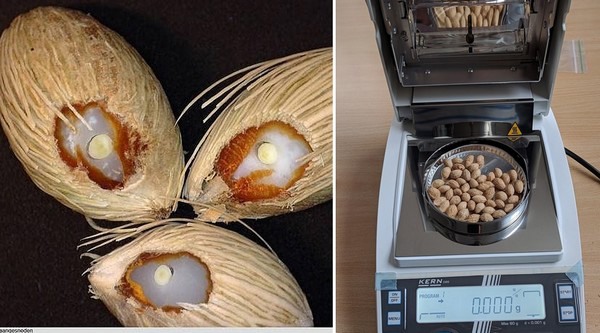
Areca seeds (left cut through, right on the scale)
Upon arrival, the seeds are assessed according to a fixed protocol, says Arthur Spruit. "Whether it concerns eucalyptus seed, where 1 kilo of seed comes down to 1.3 million seeds, or a batch of 5,000 kilos of areca seeds with 1800 seeds in one kilo, we want to know what the purity, the thousand corn weight, the vitality and also the percentage of dry matter are."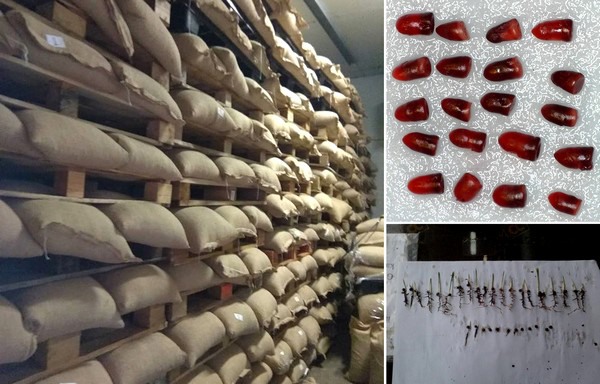
Chamaedorea elegans germs and seedlings, and left the seeds in storage
Upon receiving batches of seed, first the transport conditions are measured with a temperature recorder. Next a test batch of seeds is then cut through in the lab to expose the sprout. This is then treated with a liquid, after which the seeds darken, a way to be able to assess the vitality of the seeds.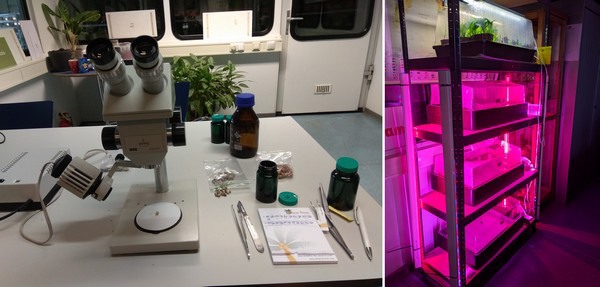
The microscope is of course an important instrument. On the right some germination tests in progress under LED
With this information consequently a sow and/or storage advice can be given. If necessary, lots are cleaned, treated and/or dried, and then are packed in batches for transport to the customer or temporarily stored. Storage takes place in storage cells, in which specific storage conditions such as optimal temperature and humidity can be guaranteed.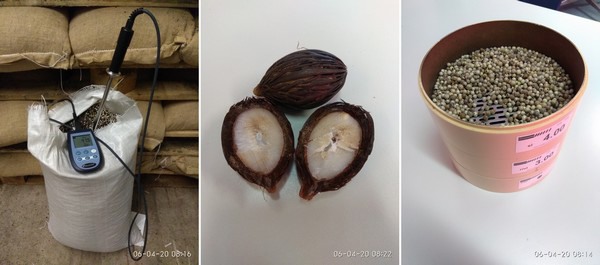
Left: measurements of the seed. Center: cross section of Wodyetia bifurcata. Right, Chamaedorea elegans being sieved
Tropical Seeds specializes, as the name implies, in tropical seeds. Over the years, countless contacts have been made with the most exclusive (tropical) places in the world, while in the Netherlands storage, weathering and selection and finally distribution are taken care of.
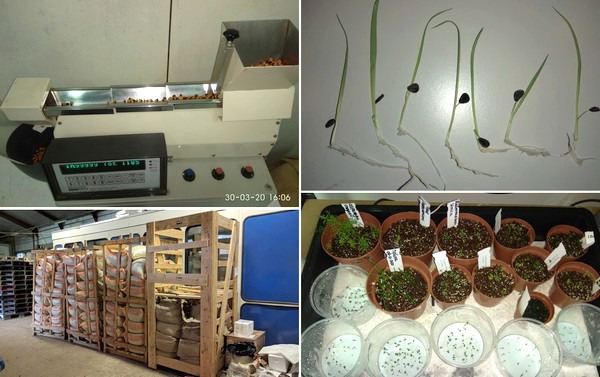
For more information:
Tropical Seeds
info@tropicalseeds.com
www.tropicalseeds.com
